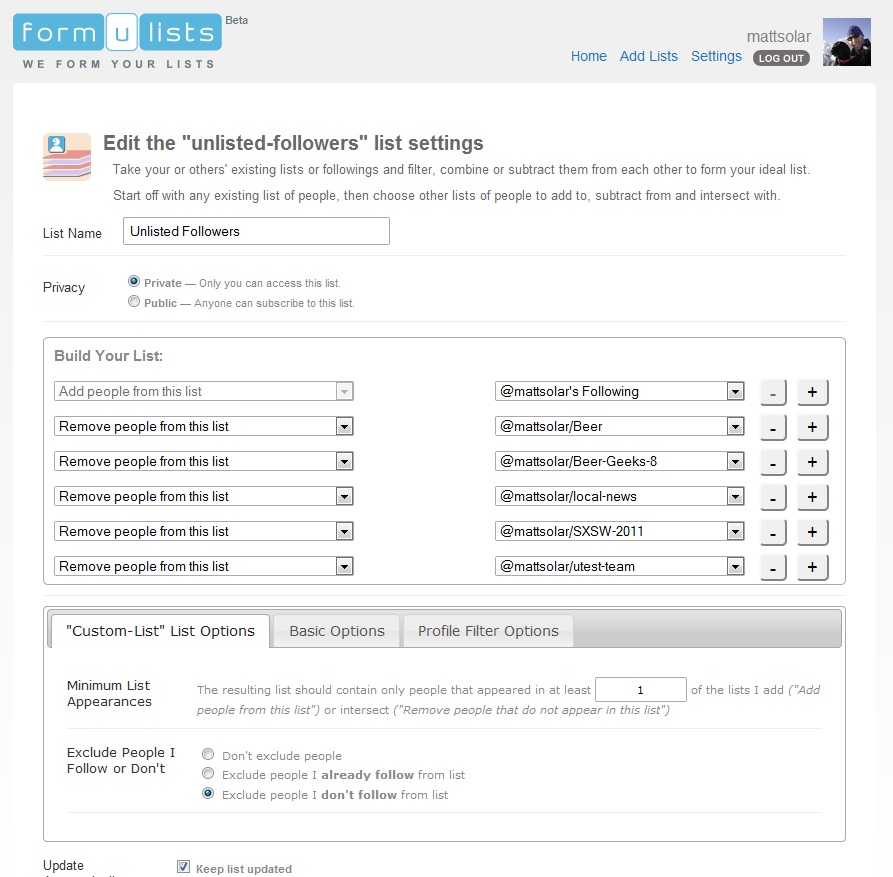Note: this is a cross-post from the uTest software testing blog. Â Please visit the original post for more comments, Tweets, and other goodness.
I recently attended a marketing conference that discussed emerging technology trends. When the panel was asked what was the single-word topic of 2010 they almost all said, “mobileâ€. I didn’t think of it at the time but I’d argue that the word of the year is “privacyâ€.  That thought, coupled with a current email-based discussion I’m having with a luddite friend (he’s not on Facebook or LinkedIn), got me thinking about some of the privacy issues that we — as a global population of netizens — will face in 2011 and beyond.
Concern about privacy is hardly a new topic. Back in 1999 Scott McNealy, then the CEO of Sun Microsystems notoriously said, “you have zero privacy. Get over it.â€Â I love the brevity, Scott, but that is not going to get you on a Hallmark card anytime soon. Yes, the web brought on a change in the level of privacy that users may expect, but the role of marketing has always been to predict the intent of potential customers by tracking user behavior. Computers and the internet, however, have yielded a seismic shift in the cost, speed, availability and sheer amount of data – perhaps changing at a rate faster than humans can conceptually deal with, and thus creating debates about how to strike a balance in this brave new world.
In 2010, however, we’ve seen more information about the reconciliation of online and offline data. From cars, to finances, to the recent announcements about the TSA’s new full-body scanners, it’s no longer just our web browsing history that’s available to evil marketers like myself. Here’s a quick rundown of a few privacy issues, how they can be exploited, and what you should know about protecting yourself:
 Full Body Scanners
Full Body Scanners
The US Transportation Security Administration (or TSA) recently deployed 450 full body scanners at airports. The goal of the scanners is to provide security officials with a quick scan of a person for weapons and/or contraband. The scanners, however, have raised concerns about safety and privacy.
While the radiation risk is to the employees operating the machinery, the privacy threat is real. Airlines most likely knows your name, address, credit card, and anything else in their database from your online purchase. From there, it’s not much a leap to determine precisely who you are. Yes, you’re anonymous in number, but could airline industry marketers use such information? What if a local gym, heath food store, or weight loss program did an instant analysis of your body fat and targeted their marketing at you? Is there any guarantee the images aren’t being stored? Or shared? There’s a lot of uncertainty about the future of these scanners and the data they derive.
Short of refusing to fly, your options are limited. The TSA, unfortunately, has the ultimate say in who gets on the plane and who doesn’t. Plan for the worst, hope for the best. …and maybe threaten to arrest them.
Social Networks
Social networks, like Facebook, LinkedIn and Twitter, face scrutiny on two sides. The manner in which such companies handle and utilize user data is scrutinized, but also what information will be utilized by advertisers and/or made available to 3rd parties (whether it’s evil marketers or just “friends of friends”).
Want proof of users’ respective ignorance to the power of social networks? Look no further than PleaseRobMe.com, who consolidated Tweets about people leaving their houses unoccupied. While this behavior and data still exists (see people going on vacation for a couple weeks), sites like PleaseRobMe and YourOpenBook.org certainly illustrate the potential vulnerability of our over-sharing ways.
It’s not just nefarious individuals who can exploit this information, though. Corporations have long been using Facebook to profile potential employees, but can now use publicly available data to fire current employees. Governments are also beginning to utilize data — as the Israeli armed forces recently used public information on Facebook to track down draft dodgers.
Strides have been made — big-league players like Facebook and Google publish straightforward info on how to manage one’s privacy settings. (See Facebook Privacy Controls and Google Privacy Center)… not all global powerhouses from the past have been so user-friendly.
Behavioral Marketing
Google is a data magnet, consuming and harvesting everything in its field of in. From mining unsecured Wi-Fi data, to Street View (and getting banned by the Czech Republic), watchdog groups have long been wary of any one company having so much data (read as: power). Needless to say, they know a lot about you.
Companies like X+1, however, take it a step further by harnessing this information for the good of marketing. WSJ.com recently did a nice article on the power of X+1 and their rival companies. To oversimplify, X+1 cross references data from numerous sources to paint a picture of you as an individual. X+1 can then use this information to serve you relative marketing promotions. I find this level of targeting fascinating but there are tools that you can use to opt-out of this granular level of targeting. NAI has a tool to let you mass opt-out of behavior targeting across many companies.
Location-Based Services
Location-Based Services (or LBS) such as FourSquare, Gowalla, and Facebook Places, are the essence of removing the privacy layer between you and retailers. LBS games allow you to “check in†at your favorite companies, thereby allowing them to offer you specific promotions. While the games are currently only triggered by specific “check in†actions, there are a lot of people concerned with the potential privacy exploits. As CNET points out, “Facebook application developers are able to store their own check-in data in the Facebook Places database and retrieve information from the database.â€Â In English, this means that companies could potentially access your history and more personal information than you anticipated.
Cars
For better or worse, this ain’t your father’s car. Automobiles are becoming more wired by the day. To be more specific, vehicles are becoming more wired for the better while drivers are becoming more wired for the worse. Driving while texting is now banned in several US states, including uTest’s home state of Massachusetts.
GPS-based speed limits are one of the original tools of monitoring your location. Basically the software would cap your speed based on your global coordinates, preventing motorists from exceeding the local speed limits. Cool in concept, but are people willing to drive cars that can be remotely turned off at any point?
There’s been talk of a possible solution, though: blocking your cell signal. The logistics of these requirement are still years away and becomes more of a political discussion than a privacy one, unless the technology utilizes your cell phone’s location to automatically turn your phone on/off to calls and data.
Before either of those concepts reach implementation I’m hoping that before we get to that point we have Google cars hit mass market (I cannot wait for the day that I can cruise down the highway to work at 100+mph… from the back seat while playing Angry Birds). Google Cars will certainly have privacy concerns, though as it will inevitably know where and when you’re going, and possibly who you’re with (via cell phone and/or RFID’s). And if Google wants some “test drivers” for this world-changing innovation, I think I may know where they can find ~31,000 beta testers.
I’m interested in hearing what tech/privacy options you think will be have the biggest impact (for better or for worse) in 2011. And how will you tell your parents to protect themselves online? As for me, I’m going into private browsing mode.



